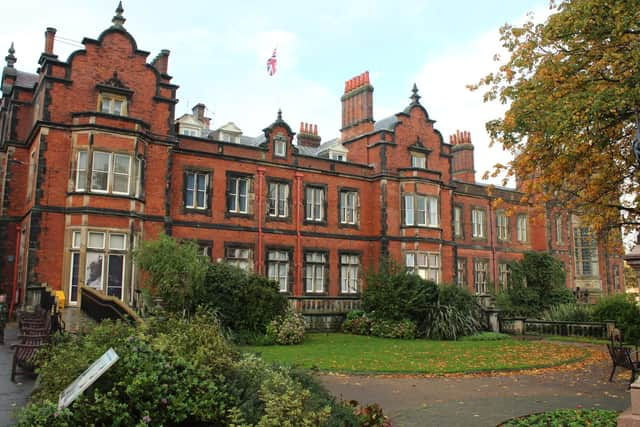‘Heat or eat’: Scarborough councillors welcome report on impacts of cost of living crisis
and live on Freeview channel 276
Councillors attending a meeting of Scarborough Council’s Places and Futures Overview and Scrutiny Committee discussed the findings of an inquiry into the cost of living crisis in Scarborough.
The inquiry, headed by Cllr David Jeffels, found that up to “85% of North Yorkshire’s most deprived residents lived in Scarborough”.
Advertisement
Hide AdAdvertisement
Hide AdThe inquiry also found that in comparison with the rest of the county, Scarborough has the highest levels of homelessness and rough sleeping, the highest proportion of households living in fuel poverty, and “the poorest health outcomes”.


Speaking at the meeting of the scrutiny committee on Wednesday, December 21, Cllr Rich Maw said: “Since the cost of living crisis, there is definitely a point to be made that people are choosing whether to heat or eat, or they are seeing their children eat but going without themselves.”
Although the council has said that the findings of the inquiry will be useful in coming up with recommendations for action, the report adds that “where opinions are expressed, it should be pointed out that they are not necessarily those of Scarborough Borough Council”.
Cllr David Jeffels said: “What has emerged since the [inquiry] was the good work that is already being done in the borough, in our parishes, through the churches, village halls, parish councils and other community organisations to bring people together.
Advertisement
Hide AdAdvertisement
Hide Ad“And the borough council’s own warm welcome fund has been well used.
"It has brought people together and it has enabled them to meet up and have a chat and something to eat, and generally, give them that feel-good factor.
“As I say, it is a real milestone for the council to have achieved this, certainly at this late stage in its life.”
Evidence for the inquiry was collected from various sources and organisations.
Advertisement
Hide AdAdvertisement
Hide AdIn addition to inviting residents to submit their views and personal experiences, a one-day hearing was also held with representatives from charitable bodies providing views and suggestions on how to best help households.
The committee’s report states that the effects of the crisis will continue well into next year, with a prediction from the Office for Budget Responsibility stating that household incomes will not start to recover until the end of 2024.
A more immediate prediction also states that nationally “an extra 1.3 million people will fall into absolute poverty in 2023, including 500,000 children”.
At the meeting, Cllr Guy Smith raised the impact of the cost of living constraints on mental health, including that of children, and asked how mental health had featured in the report.
Advertisement
Hide AdAdvertisement
Hide AdCllr Jeffels said: “If we can get the parents to seek out grants that are available to them, that in itself is going to benefit the youngsters in a family.”
He added that the crisis had a clear “knock-on effect” on mental health.
Several recommendations were set out in the report, including suggestions for financial assistance and future policy decisions, although the new North Yorkshire Council will replace Scarborough Council next April.
However, councillors called for the recommendations to be adopted by the new unitary authority.